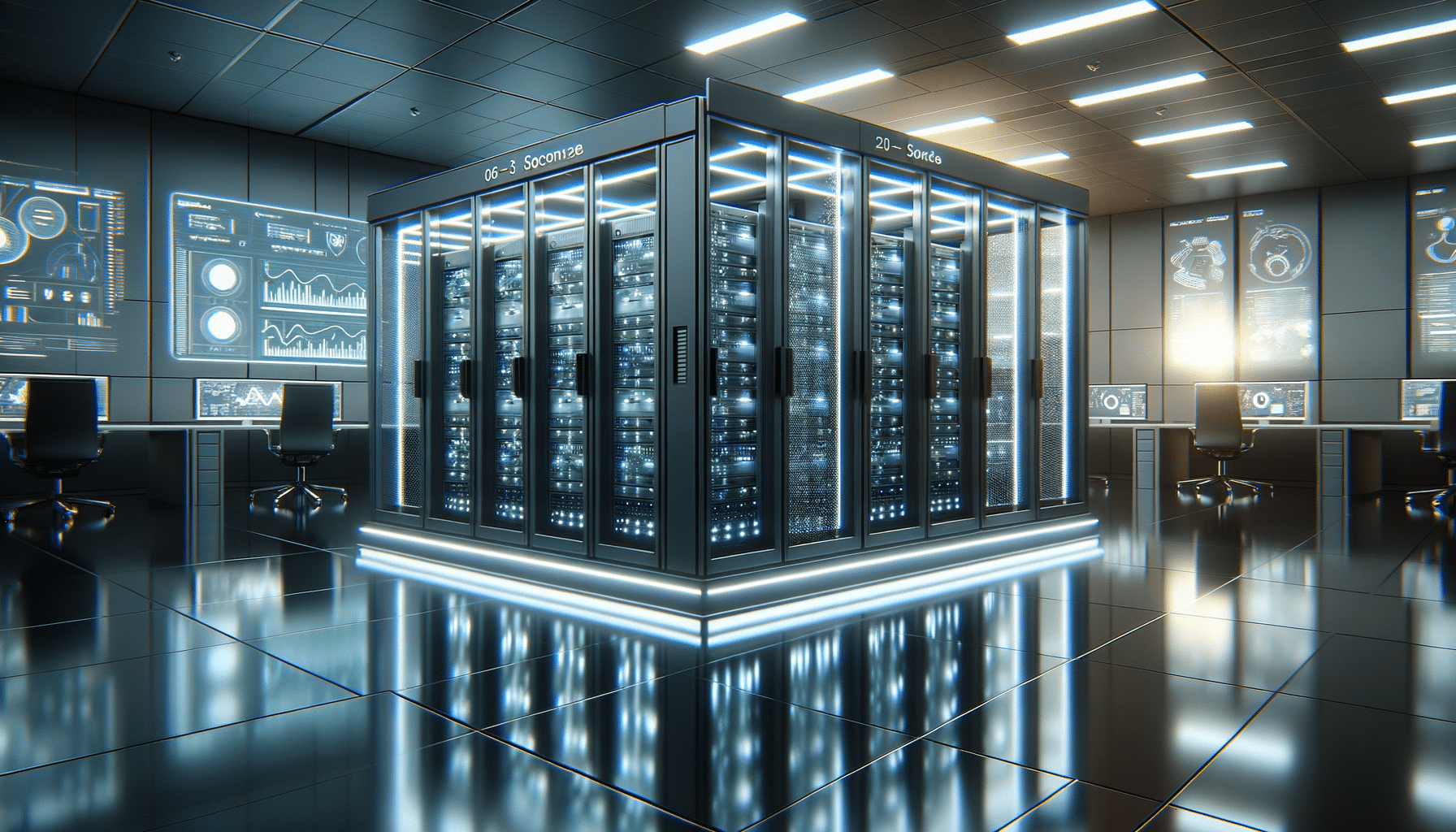
Enterprise Cyber Defense Strategies 2025: How AI and Automation Secure Modern Businesses
Introduction to Modern Cybersecurity Challenges
In today’s digital age, the landscape of cybersecurity is rapidly evolving. As businesses become increasingly reliant on digital platforms, the threat of cyber attacks grows exponentially. This shift necessitates a new approach to cybersecurity, one that embraces advanced technologies like AI and automation. The traditional methods of defense are no longer sufficient; businesses must now anticipate and neutralize threats before they materialize. This proactive stance is essential in a world where cyber threats can lead to significant financial and reputational damage.
Cybersecurity is no longer just an IT issue; it is a critical business concern. With the rise of sophisticated cyber attacks, businesses must invest in robust cybersecurity strategies to protect their assets and customer data. This involves not only implementing advanced technologies but also fostering a culture of security awareness among employees. By doing so, businesses can safeguard their operations and maintain trust with their clients.
Moreover, the regulatory landscape is becoming more stringent, with governments around the world introducing new laws to protect consumer data. Compliance with these regulations is crucial for businesses to avoid hefty fines and legal repercussions. Therefore, understanding and adapting to the modern cybersecurity challenges is imperative for any business aiming to thrive in the digital era.
The Role of AI in Cyber Defense
Artificial Intelligence (AI) is revolutionizing the field of cybersecurity by providing businesses with advanced tools to detect and respond to threats in real-time. AI algorithms can analyze vast amounts of data at unprecedented speeds, identifying patterns and anomalies that may indicate a cyber attack. This capability allows businesses to respond to threats more quickly and effectively than ever before.
One of the key advantages of AI in cyber defense is its ability to learn and adapt. Machine learning models can be trained on historical data to improve their accuracy and efficiency over time. This means that as new threats emerge, AI systems can quickly adapt to recognize and mitigate them. This dynamic approach to cybersecurity is essential in a world where cyber threats are constantly evolving.
Furthermore, AI can help automate many of the routine tasks associated with cybersecurity, freeing up human resources to focus on more strategic initiatives. By automating tasks such as threat detection and response, businesses can improve their overall security posture while reducing the burden on their IT teams. This not only enhances efficiency but also reduces the risk of human error, which is often a significant factor in security breaches.
Automation: Enhancing Efficiency and Response Times
Automation is a critical component of modern cybersecurity strategies, enabling businesses to respond to threats more quickly and efficiently. By automating routine tasks such as monitoring and alerting, businesses can ensure that potential threats are identified and addressed promptly. This is particularly important in today’s fast-paced digital environment, where delays in response times can have serious consequences.
One of the primary benefits of automation is its ability to reduce the time it takes to detect and respond to threats. Automated systems can continuously monitor networks for suspicious activity, alerting security teams to potential issues as soon as they arise. This allows businesses to take immediate action to mitigate threats, minimizing the impact on their operations.
In addition to improving response times, automation can also enhance the accuracy of threat detection. Automated systems can analyze vast amounts of data in real-time, identifying patterns and anomalies that may indicate a cyber attack. This level of analysis is beyond the capabilities of human analysts, making automation an essential tool in the fight against cybercrime.
Moreover, automation can help streamline compliance efforts by ensuring that businesses adhere to regulatory requirements. Automated systems can track and report on compliance metrics, providing businesses with the information they need to demonstrate adherence to relevant laws and standards.
Building a Culture of Cybersecurity Awareness
While technology plays a crucial role in cybersecurity, human factors remain a significant consideration. Building a culture of cybersecurity awareness is essential for businesses looking to protect themselves from threats. This involves educating employees about the importance of cybersecurity and providing them with the tools and knowledge they need to identify and respond to potential threats.
Training programs are an effective way to raise awareness and educate employees about cybersecurity best practices. These programs can cover topics such as recognizing phishing emails, creating strong passwords, and understanding the importance of data protection. By equipping employees with this knowledge, businesses can reduce the risk of security breaches caused by human error.
In addition to training, businesses should also implement policies and procedures to promote a culture of security. This can include regular security audits, access controls, and incident response plans. By establishing clear guidelines and expectations, businesses can ensure that all employees understand their role in maintaining the organization’s security.
Furthermore, fostering a culture of cybersecurity awareness can enhance employee engagement and accountability. When employees understand the importance of cybersecurity and feel empowered to take action, they are more likely to contribute to the organization’s overall security efforts.
Conclusion: The Future of Cybersecurity in Business
As we move into the future, the importance of cybersecurity in business cannot be overstated. The digital landscape is constantly evolving, and businesses must adapt to stay ahead of emerging threats. By leveraging advanced technologies such as AI and automation, businesses can enhance their security posture and protect their assets from cyber attacks.
However, technology alone is not enough. Building a culture of cybersecurity awareness and ensuring compliance with regulatory requirements are equally important. By taking a holistic approach to cybersecurity, businesses can safeguard their operations and maintain trust with their clients.
The future of cybersecurity in business is bright, with new innovations and strategies emerging every day. By staying informed and proactive, businesses can navigate the complex cybersecurity landscape and thrive in the digital age.

